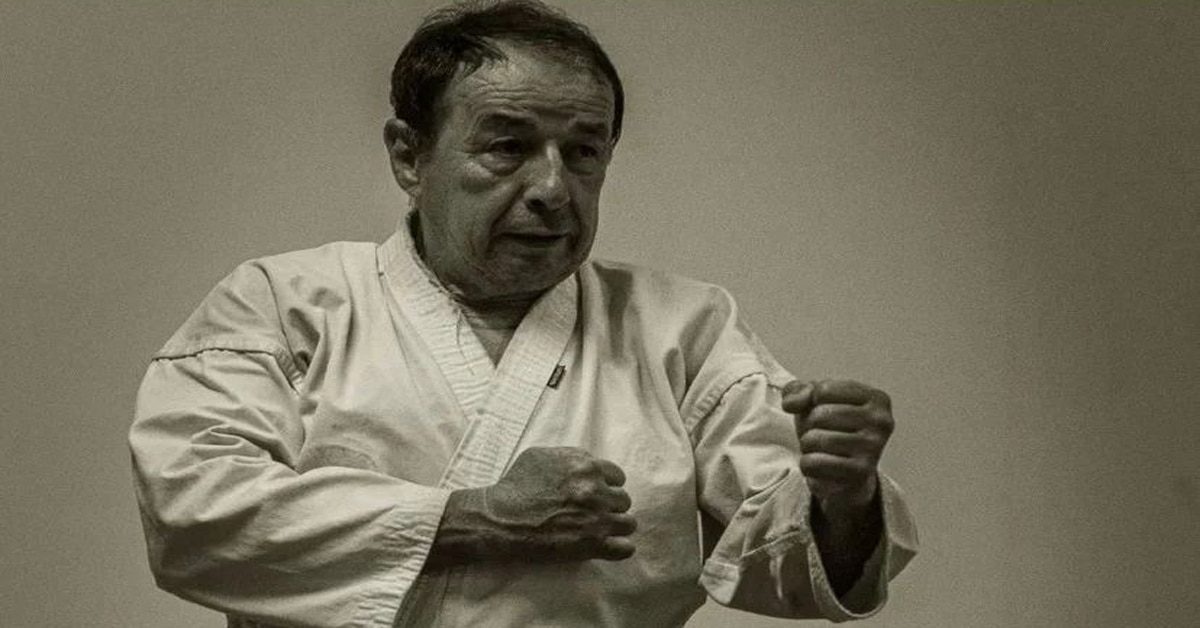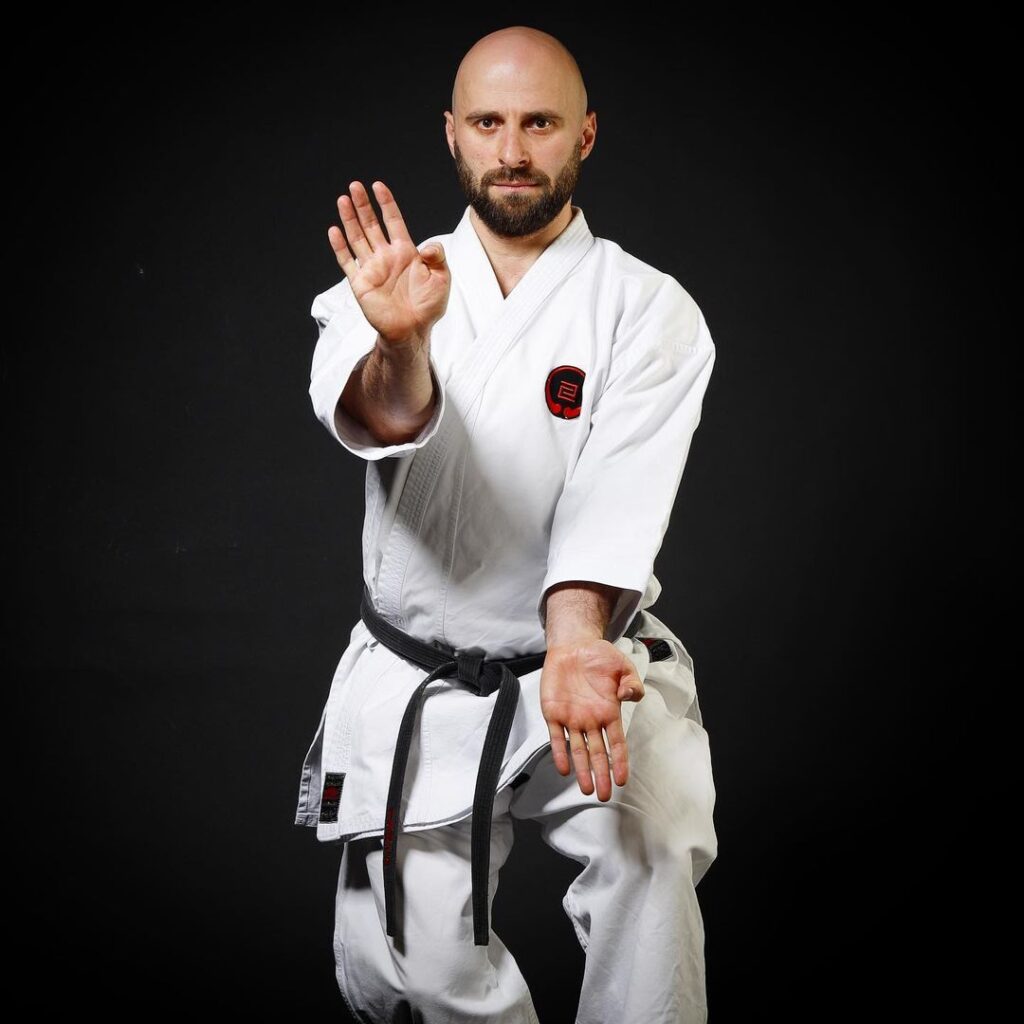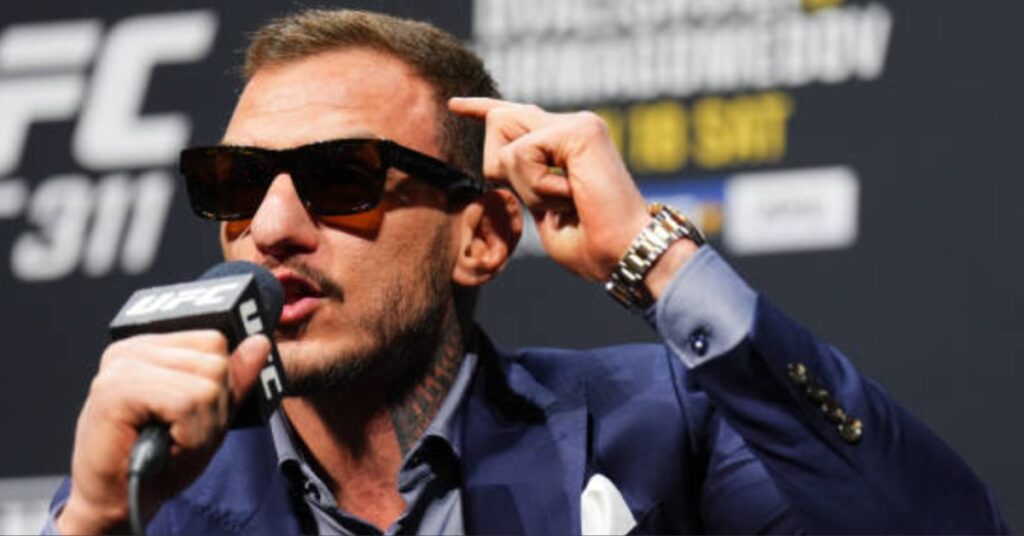What Is A Sensei In Karate?

Have you ever wondered what a sensei is in Karate? It’s obvious that it means teacher, but what is the deeper meaning behind the title of sensei?
Let’s dive in and behind what a sensei is in Karate. Going over the origins of the word and other names that are used for instructors within Karate.

What Is A Sensei In Karate?
If you hadn’t guessed, sensei is the Japanese word for teacher. The word directly translates to the phrase “the one who has gone before.” Another translation of the word is “born first.”
To earn the title of sensei in Karate means that you have dedicated your life to the martial art. It’s not a title you earn after attaining a certain degree on your black belt, but by your dedication.
The Origins Of The Word Sensei
You probably heard the word sensei numerous times throughout your life but are unaware of the word’s origins. The word is the combination of two Japanese words, which are sen and sei. Sen means before, and sei means life.
Oddly enough, the word sensei is actually not that old. It started to be used in Japan during the early 1960s. Students began using the term for their teachers as a sign of respect and to honor them.
It was first used to refer to martial arts teachers, then began being used for teachers in other fields. Everyone from lawyers, doctors, and engineers began to refer to their superiors as sensei.
Earlier Origins Of Sensei
Like most things martial arts related, the roots of the word sensei can be traced back to India. The word sensei came from the Indian word sen-an.
The name for the leader of the group of Indian warriors called the Kshatriyas. To be the leader of these warriors, the sen-an had to display courage, generosity, and diplomacy. Also, a desire to protect the weak.
Later this word would migrate to China, where it changed to senfan. Once the word was changed in China, the definition also changed to mean for a skilled martial artist. Also, one who teaches their martial art.
Other similar names that were used in China were sifu(Cantonese) and Shifu(Mandarin Chinese). After going through China, it would eventually reach Japan and evolve into sensei.
Is Sensei Only Used In Karate?
No, the word sensei isn’t just used within Karate but nearly all Japanese martial arts. Other popular Japanese martial arts that use the term sensei for an instructor include Judo and Aikido.
But the word sensei isn’t just for martial arts, but for all things since it’s the Japanese word for teacher. It’s common in Japanese culture for the term sensei to be used for any teacher of any field of study.
Other Titles For Instructors In Karate
Aside from sensei, there are other titles for instructors that are used within Karate. Three actually that are reserved for those that are higher rank than 4th Dan.
- Renshi
- Kyoshi
- Hanshi
Renshi
After sensei, the next title that a Karate instructor can attain is the title of renshi. The term renshi means polished instructor, which can be earned after either achieving the 5th or 6th Dan.
Kyoshi
Kyoshi is the next title that a Karate instructor can earn after achieving the 7th or 8th Dan. The term kyoshi roughly translates to “professor.”
Hanshi
To reach the title of hanshi, a Karate instructor must reach the 9th or 10th Dan level in the martial art. The term “hanshi” means senior master in English. Being called a hanshi means that you are an example of excellence to others and what they should strive for.
Shihan
Shihan isn’t really a word that students use for instructors, but one you may hear. It’s a word that some black belts use when referring to another black belt or senior instructor.
Is Sensei Used Much In Western Karate Schools?
Sensei isn’t a title you often hear from Karate schools within western nations. It is more of a title used within Japan than in the west.
Instructors of western Karate dojos rarely ask their students to refer to them as sensei. Generally, because it’s rather strange to ask their students to call them sensei.
Although, out of respect, some Karate students will affectionately refer to their instructor as sensei.
Non-Formal Titles Used For Karate Instructors
If you were a Karate practitioner and didn’t call your instructor sensei, you probably used a more non-formal title. Here are the most common non-formal titles that are used for Karate instructors.
Coach
Probably the most common non-formal title for a Karate instructor is coach. Usually, the word coach is followed by their first name, last name, or just coach for short.
Since most Karate schools train for competitions like sports, it’s normal to call the instructor coach. It isn’t just used for Karate but just about all martial arts from BJJ, MMA, and Muay Thai.
Mr./Mrs./Ms.
To add a little formality to their names, many instructors will ask their students to call them Mr., Mrs., or Ms. Just like a grade school teacher would ask their students to refer to them in class.
First Name
It’s not very normal to hear, but some Karate instructors remove formalities and allow students to use their first names. This is more common when an instructor is around the same age as the students they’re teaching.
Final Thoughts
The title of sensei in Karate is a title that is earned through years of hard work and dedication. It’s an incredible honor to earn the title of sensei, and means that you are an expert in Karate.






